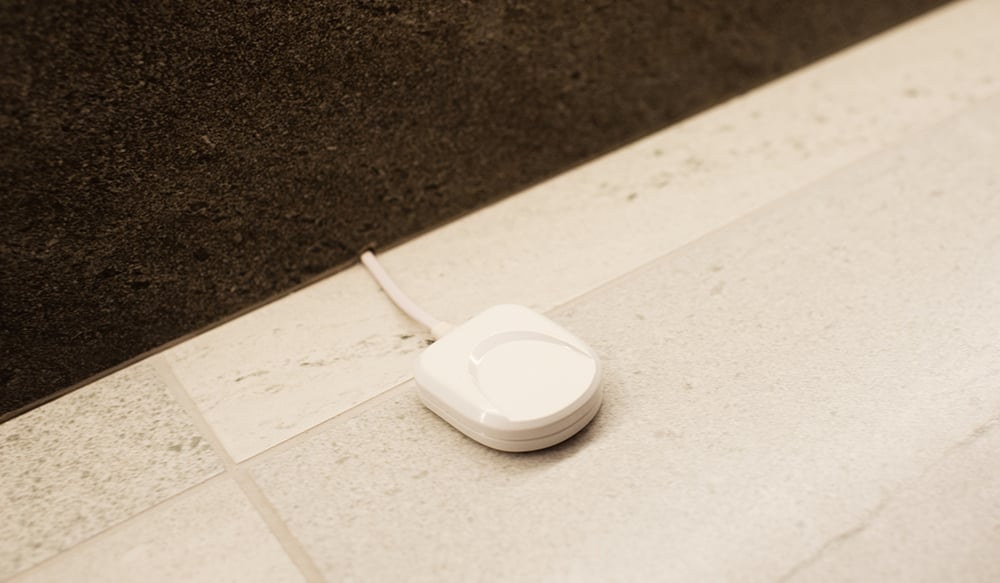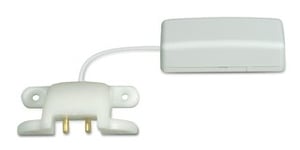What Is a Flood Sensor?
Home Security Tips Smart Homes Nov 18, 2020 10:35:39 AM General Security 3 min read

Flood sensors provide your home and property with critical protection from leaks and potential flooding sustained from interior or exterior sources, via immediate alerts that can help prevent costly water damage.
They can also be integrated with related smart technologies through the Alarm.com mobile app, such as temperature sensors, stove and grill guards, and other wellness benefits.
Learn more on how flood sensors can protect your home and property from water leaks, potential flooding, and damage.
Understanding Water Damage
It’s important to know how moisture and condensation enter your home, before it’s too late. Most water damage is incurred through interior sources, such as faulty plumbing, leaky pipes, and household appliances. 
Exterior issues include severe weather, groundwater flooding, and foundation and wall cracks.
Undetected leaks and water can cause lasting damages to your property, home, valuables, and other items. This includes producing structural issues, such as buckling floors and ceilings, foundation cracks, and electrical problems.
If not discovered in a timely manner, water damage can also lead to life-threatening, toxic black mold.
Functionality & Benefits
When choosing a flood sensor, it’s prudent to monitor moisture, water, and temperature. When integrated with smart technology, temperature sensors alert to sudden and extreme fluctuations, which could lead to weather-related flooding.
This additional layer is paramount for secondary or seasonal homeowners who might not be onsite as water levels increase.
Placement & Types
As aforementioned, flood and temperature sensors detect moisture in spaces that should normally be dry, and alert homeowners, to avert expensive damages.
Consider the following placement recommendations by leak type and location.
Bathrooms
Sensors placed near toilets and tubs, or under sinks provide quick leak detection from faucets and pipes, or clogs and overflows.
Flood sensors provide your home and property with critical protection from leaks and potential flooding sustained from interior or exterior sources, via immediate alerts that can help prevent costly water damage.
Kitchens & Laundry Rooms
These can detect water from leaking appliances, such as dishwashers, refrigerators and freezers, or washing machines, basins, and sinks.
Consider placing sensors behind or underneath appliances, and under kitchen sinks, to avoid damaged flooring, cabinets, and countertops.
Basements
According to iPropertyManagement.com, an online hub for property managers and investors, 98% of all homes with basements will experience water damage at some point.
It’s therefore paramount to install flood sensors in this vulnerable area due to its sub-level location and many water sources. These include pipes; hot water heaters; HVAC systems; and appliances, such as washing machines and secondary refrigerators.
Other potentially damaging sources include faulty septic and sewage systems, and excess weather-related groundwater.
Garages & Attics
Install flood sensors here for leak and condensation build-up detection in foundation and wall cracks, and doors and roofs.
When choosing a flood sensor, it’s prudent to monitor moisture, water, and temperature.
Safety & Protection
It’s best to work with a reputable and experienced service provider, such as General Security, to ensure your home is protected from flooding and water damage. We can assist with planning, device placement, product choices, and smart technology integration.
General Security provides a complete line of flood and temperature sensors. Request a free, contactless quote from us today.
